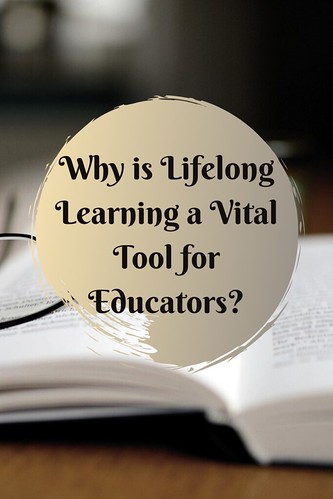Teachers, by the very nature of their job, have an instinct for learning, distilling and sharing information, and they are also the very symbol of a lifelong passion for discovering new things. “The need for imagination, as a sense of truth, and as a feeling of responsibility—these are the three forces which are the very nerve of education,” said Rudolf Steiner, yet when this need is ignited, it never truly ends.
If you are an educator who is considering further study part or full-time, what benefits can you gain from this valuable investment of time and money, and how can you make the process easier while you are doing what you love best: teaching and connecting intellectually with your students?

Salary differences for educators with graduate degrees
Regardless of whether you are teaching kindergarten, elementary, middle or high school, there are significant salary differences depending on whether you have a Bachelor’s or a Master’s degree. Brookings University academics report that “A master’s degree may advance a teacher’s salary up to $5,000, even in the first year of employment.” The National Council on Teacher Quality, meanwhile, reports an 11% increase in pay for teachers with a Master’s Degree in the largest school districts in America.
How realistic is further study?
If you are keen on earning a Master’s degree or a Doctorate, time may be the major factor holding you back. A Master’s degree takes between 1.5 and 2 years, owing in no small part to the thesis requirement. A Doctorate, meanwhile, will take around 8.2 years to slog through. A PhD without a dissertation is one option for those wishing to finish their doctoral program faster. In this case, students complete a capstone project in a specific area of interest. This type of program is ideal for those who like to apply their knowledge to real-life scenarios. Their aim is to deliver an immediate solution to a pressing problem.
Personal benefits of lifelong study for educators and students
Because educators are passionate about learning, continuing to study throughout their career can have many more benefits than professional ones. In one University of Alberta study on the importance of lifelong learning, lead researcher, J Denison says, "Coaching is complex, continually changing and influenced greatly by the context, athletes' circumstances and the developing relationship between the coach and the athlete.” Replace ‘coaching’ with ‘educating’ and ‘athlete’ with ‘student’ and it is easy to see the parallels between both situations. Other studies (such as one undertaken at the University of California - Berkely) show that engaging the brain throughout one’s lifetime is strongly related to a lower likelihood of Alzheimer’s disease. It also helps an educator adapt to fast-changing times, and fosters a richer, more fulfilling outlook on life.
Educators wishing to inspire a love of learning in their students are usually keen readers, historians, culture, and science buffs themselves. Learning is pleasurable, fascinating, and sometimes, an escape. Of course, for many, further learning results from a desire to improve one’s salary or job prospects. Regardless of your reason, know that you will derive significant personal benefits as well—including improved brain health.
